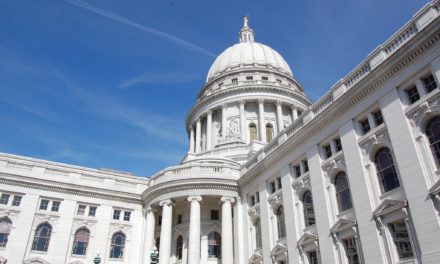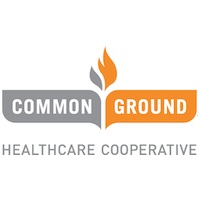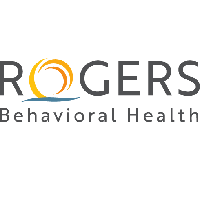
Too soon to tell impact of election on ACA, healthcare

While Republicans will control Congress and the White House starting in January, healthcare stakeholders say it’s too early to know what will happen to the federal health reform law, Medicaid and those covered through the programs in Wisconsin.
President-elect Donald Trump and other Republicans ran on a promise to repeal and replace the law, which has allowed 20 million people to gain coverage nationally. The number of uninsured Wisconsinites fell to 5.7 percent last year from 9.1 percent in 2013, a decrease of 195,000 people, according to the U.S. Census Bureau.
Trump’s healthcare plan calls for repealing a penalty for those who lack insurance, allowing families to deduct premiums from their taxes and expanding the use of health savings accounts. House Speaker Paul Ryan, R-Janesville, has proposed tax credits based on age, rather than the current subsidies that are based on income. But the proposals lack specifics.
“We’re in uncharted territory here,” Alliance of Community Health Plans CEO Ceci Connolly said. “We have a president elect who does not have a previous government record, so we can’t really study that for insight for approaches. And there are still relatively few details that have come out of the campaign with respect to healthcare.”
Connolly, whose organization counts Security Health Plan, Dean Health Plan and Group Health Cooperative of South Central Wisconsin as members, hopes any changes will help the nation and not “throw us back into the old problems of our healthcare system.”
“Bottom line is it’s still early to predict what exactly will happen and how, but we should all be prepared for more changes coming to healthcare,” said Eric Borgerding, CEO of the Wisconsin Hospital Association.
Path to repeal and replace uncertain
Ryan said Wednesday the federal health reform law is “collapsing under its own weight.” He noted that Republican lawmakers have passed a bill that would have repealed parts of the law. But President Barack Obama vetoed the proposal earlier this year, and Republicans didn’t have the votes to override it.
“Now we have President Trump coming who is asking us to do this,” he told reporters in Janesville Wednesday morning. “With unified Republican government, we can fix this.”
That bill used a process called budget reconciliation. But it was unclear Wednesday whether Senate Majority Leader Mitch McConnell, R-Ky., agrees with Ryan on pursing that path.
Repealing parts of the law through budget reconciliation would require 51 votes to move forward. But a bill replacing and repealing the law would need 60 votes to overcome a potential filibuster, requiring the support of Democrats and independents.
If lawmakers choose reconciliation, there would likely be a transition period of about two years before the changes take effect, said Donna Friedsam, health policy programs director at the University of Wisconsin Population Health Institute.
“In terms of repeal and replace, we don’t know what kinds of replacement plans might be put together and gain the consensus needed,” she said. “Repeal would require the supermajority in the Senate, and it’s not something that’s likely to happen very quickly.”
Connolly hopes lawmakers would pursue a different method than reconciliation to give stakeholders more time to study the changes. She added that reconciliation has its limits because it deals with revenue-related measures.
“You would be left with a real patchwork kind of health plan here in the United States, a health system that more resembles Swiss cheese,” Connolly said. “That does not sound like what we really want.”
Newly re-elected Sen. Ron Johnson, R-Wis., a fierce opponent of the federal health reform law, has vowed to repeal and replace it.
A spokesperson for Sen. Tammy Baldwin, D-Wis., said both parties should work together to fix the law, not repeal it. Trump’s plans to repeal the law in his first 100 days of office would cause more than 200,000 Wisconsinites to lose their insurance plans in the federal marketplace, leading to “more uninsured and a lot of uncertainty and insecurity for Wisconsinites,” noted the spokesperson.
Healthcare leaders react to election
Some healthcare organizations don’t support a repeal of the law. Rather, they’re asking lawmakers to consult with stakeholders and fix what’s not working.
“My hope, indeed expectation, is that cooler heads will prevail,” said Rick Abrams, CEO of the Wisconsin Medical Society.
Abrams said lawmakers should address the increases in premiums for individuals and small group markets. But he hopes they would continue to prohibit insurers from denying coverage to those with pre-existing conditions.
Connolly noted that there are popular elements to the law, like parents being allowed to keep children covered on their plans through the age of 26 and essential health benefits that must be included in a plan.
“All politicians of every political party know that,” she said. “Despite the shorthand repeal, it is important to recognize that everyone will want to preserve at a minimum the important elements of it.”
Connolly called the Affordable Care Act “a complicated puzzle.”
“It’s hard to start just start pulling out random pieces,” she said. “So what we’re hoping for is that all sides can get together and take a look at what’s working, what needs to be fixed, and let’s go about making those fixes.”
And healthcare leaders are looking to make sure that reducing the number of uninsured is still a goal.
“Love it or hate it, Obamacare has now been the law for over six years, and dozens of its elements are now woven into the healthcare delivery and insurance systems,” Borgerding said in a statement. “Reducing the number of uninsured is a key consideration as we look to the future and proposals to replace current law.”
Regardless of the changes, the pace of change is just as important as any of the coming changes to the law, he noted. The nation’s healthcare delivery and insurance systems have undergone “massive upheaval and realignment,” mostly due to the law, he noted.
Of the roughly 225,000 people enrolled through Healthcare.gov and still paying premium as of March, 85 percent received tax credits to help pay for premiums. That means it’ll take time to craft and transition any major changes, he said.
“An abrupt U-turn could result in greater confusion, dissatisfaction and frustration,” he said. “There’s too much there to instantly unwind. It will require pace and transition.”
An executive with the American Hospital Association said Monday that the soonest any replacement would take effect would be in 2020, given the time it would take to implement the bill.
Regardless of the federal health reform laws future, Wisconsin’s community-based health plans “will continue to make the state’s health insurance market competitive…and quality healthcare more affordable,” said Phil Dougherty, senior executive officer at the Wisconsin Association of Health Plans.
Advocates prepare to fight for Medicaid
Both Ryan and Trump are calling for changing the structure of the Medicaid program to provide funding in the form of block grants. It’s an idea that interests some state lawmakers.
“I would love the opportunity for them to give us the flexibility to make our own decisions,” Assembly Speaker Robin Vos, R-Rochester, told reporters Wednesday. “Our goal is to increase coverage and not distort the marketplace into something that creates winners and losers like Obamacare.”
Borgerding noted that Medicaid is a complex program, varying from state to state. It’s been a consistent safety net for the state’s most vulnerable, he said.
“Going forward, WHA looks forward to more opportunities for innovation while at the same time preserving and strengthening the Medicaid safety net that has proven an integral component of Wisconsin’s laudable record of expanding healthcare coverage over the past two years,” he said.
Advocates for the poor are already preparing to fight for Medicaid and the federal health reform law’s exchanges.
Ron Pollack, executive director of the consumer group Families USA, said they’re “going to be on a total war footing” to make sure a repeal of the law “never comes about.”
“We will fight at the grassroots level and in the halls of Congress to make sure Mr. Trump’s proposed (Affordable Care Act) repeal and Medicaid restructuring don’t happen,” he said in a statement. “Millions of people should not have their lives placed in jeopardy through reckless action.”
Jon Peacock, research director at the Wisconsin Council on Children and Families, said Trump’s choices might “not only erase that improvement” but “push the uninsured rate higher than it was before” the federal health reform law.
“For many healthcare advocates, Trump’s victory means that our attention will shift from trying to expand Medicaid to trying to protect it from fundamental structural changes that could threaten access to healthcare for millions,” he wrote in an email.
Funding for Planned Parenthood, future of abortion uncertain
Beyond the federal health reform law, Republican lawmakers may pursue legislation and rules restricting access to abortions and cutting funding to Planned Parenthood. Trump has vowed to defund the organization.
Wisconsin Right to Life Executive Director Heather Weininger said in a statement that with the election of Trump along with pro-life state and congressional candidates, “the unborn babies of Wisconsin and America are the true winners.”
Nicole Safar, government relations director at Planned Parenthood Advocates of Wisconsin, said their organization has faced “relentless attacks before” but will continue their work to ensure that all people have access to safe, affordable healthcare.
“We are still trying to understand the full impact of last night’s election results,” she said in a statement. “The divisive nature of how certain candidates talked about Planned Parenthood and the patients we serve is deeply troubling, and we hope that they take a different tone in their governing.”






















.jpg?bwg=1612548324)







